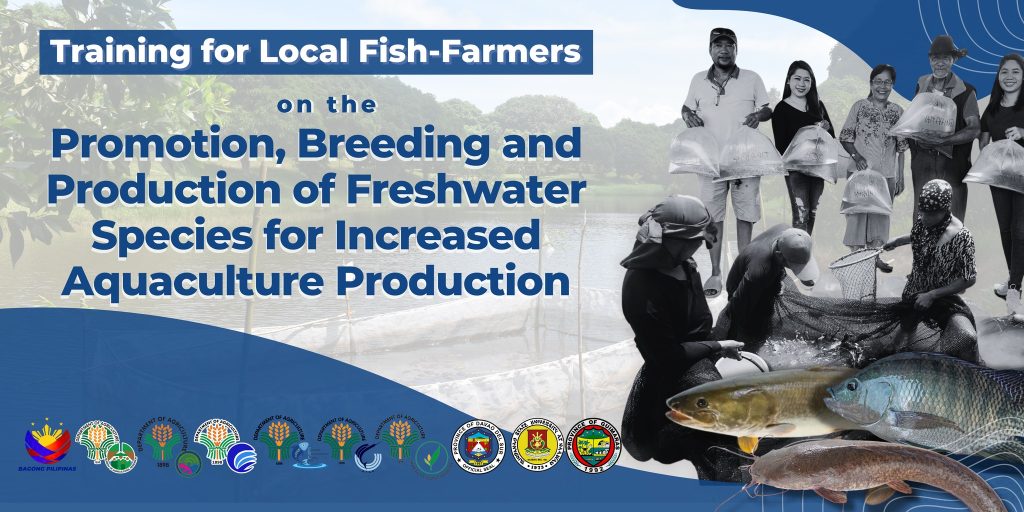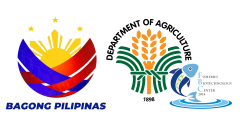
The Department of Agriculture-Fisheries Biotechnology Center organized a comprehensive two-day training program for local fish farmers in the province of Iloilo. Held at the BFAR-Regional Fisheries Research and Development Center in Nanga, Pototan, Iloilo, from February 15 to 16, 2024, the event aimed to bolster the capacities of participants in the cultivation of tilapia, catfish, and mudfish.
Attended by 25 participants including hatchery owners/technicians, local fish farmers and interested individuals, the training topics ranged from theoretical lectures to hands-on practical sessions. The initiative is part of the project titled “Promotion of Breeding and Farming Technologies of Commercially Important Freshwater Fishes for Increased Aquaculture Production Phase II,” was spearheaded by the DA-FBC and hosted by the National Fisheries Research and Development Institute (NFRDI). Funding support for the project was provided by the DA-Biotechnology Program Office (BPO) through the DA-Bureau of Agricultural Research (BAR). The project was in collaboration with the Bureau of Fisheries and Aquatic Resources-Region VI, Provincial Fisheries Office-Negros Occidental, the Provincial Office of Agricultural Services-Guimaras, and the Office of the Provincial Government of Davao del Sur.
Dr. Casiano H. Choresca Jr., Scientist I and the Center Chief of DA-FBC, the project leader of the project, emphasized that the training aimed not only to disseminate proper knowledge but also to promote the development and sustainability of freshwater farming among hatchery owners, technicians, and local fish farmers. Present during the training was Mr. Erwin Ilaya the OIC of BFAR-RFRDC, Nanga, Pototan, Iloilo which expressed his strong support in promotion of the commercially important freshwater fishes including catfish, mudfish, and tilapia. He addressed the food security we are challenging today, through capacity building of aquaculture technology adoption.
The first day of the training program commenced with an in-depth discussion of the basic history and biology of tilapia to its optimal grow-out culture in ponds. Participants were treated to insightful lectures covering feeding habits, environmental conditions optimization, growth strategies, and sustainability practices essential for tilapia production. Subsequently, the focus shifted to catfish, encompassing discussions on habitat requirements, feeding strategies, disease management, and production efficiency enhancement.
The second day featured a lecture on the biology, breeding and culture of mudfish followed by practical demonstrations on induced spawning of mudfish and catfish. This demonstration aims to equip participants with the knowledge and skills for successful fish farming.
The event concluded with the distribution of free fingerlings and feeds to the participants, providing them with tangible resources to kickstart their fish farming endeavors. Participants actively engaged during the lectures and demonstrations, expressing gratitude for the invaluable insights gained throughout the program.
At the end of the activity participants were expected to adopt various technologies discussed and will inspire them to continue engaging in fish farming.
